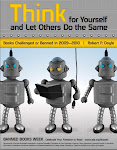This isn't the first time that a classic book has been pulled off a library shelf because a parent didn't want their darling child to read it, but it is equally obscene every time it happens.
In Culpeper County Public Schools, a version of the “Diary of A Young Girl,” by Anne Frank, was just removed from schools because a parent complained about graphic sexual language, according to the Star Exponent.
Anne Frank wrote her memoir of her life from June 12, 1942 until Aug. 1, 1944, while her family was in hiding from the Nazis during the German occupation of the Netherlands during World War II. She was caught by the Nazis and thrown into concentration camps, where she died of typhus shortly before the camp she was in was liberated by British troops in 1945.
The book was originally published in 1947 by her father, who retrieved the diary after the war. Later more of her entries from the period were found and authenticated and a fuller version was later published.
That is the one that was challenged in Culpeper, according to the Star Exponent, which quoted Jim Allen, director of instruction for the school system, saying, “What we have asked is that this particular edition will not be taught. I don’t want to make a big deal out of this. So we listened to the parent and we pulled it.”
The problem for Allen is that it IS a big deal when books are pulled off shelves because a parent doesn’t want their student to read about female genitals in the context of this Holocaust memoir, which is the passage in contention here.
The passage in question is one where Frank talks about her vagina, and this is the most commonly cited passage in the book:
"There are little folds of skin all over the place, you can hardly find it. The little hole underneath is so terribly small that I simply can't imagine how a man can get in there, let alone how a whole baby can get out!"
"There are little folds of skin all over the place, you can hardly find it. The little hole underneath is so terribly small that I simply can't imagine how a man can get in there, let alone how a whole baby can get out!"
In fact, most challenges--or attempts to remove or restrict materials based upon the objections of an individual or a group--fail, according to the American Library Association, because of librarians, teachers, parents students and others who are committed to fighting censorship.
How unfortunate that that was not true in this case.
The Star Exponent also quoted Allen as saying that the complaint was made after students had completed an assignment about the book, and that he was happy the parents “get involved.”
Getting involved is one thing; insisting that everyone adhere to a single person’s sensibilities is quite another. I’ve never heard of a school insisting that a child read a book that a parent does not want that child to read; if parents feel the need to protect their child’s innocence, fine, but don’t make that decision for everybody else.
Removing the most widely read Holocaust memoir in the world from a school library because one parent was upset is indefensible.
Of course, this book is in pretty good company when it comes to be challenged. In 2008, the latest year for which the ALA posts statistics on its Web site, there were 513 reported book challenges, up from 420 the year before.
Other classics commonly challenged include John Steinbeck’s “Of Mice and Men,” George Orwell’s “1984,” Richard Wright’s “Native Son,” Margaret Mitchell’s “Gone With the Wind,” Jack London’s “Call of the Wild,” and J.R.R. Tolkien’s “Lord of the Rings.”
The most challenged book of 2009, according to the ALA, was “And Tango Makes Three,” by Justin Richardson and Peter Parnell, based on a true story about two male penguins who care for an orphaned egg. Sounds truly subversive to me.
That book was followed on the challenge list by:
“His Dark Materials Trilogy,” by Philip Pullman, fantasy novels about two children criticized by religious groups for its portrayal of organized religion
“His Dark Materials Trilogy,” by Philip Pullman, fantasy novels about two children criticized by religious groups for its portrayal of organized religion
“TTYL”; “TTFN”; “L8R, G8R” (Series), by Lauren Myracle, books popular with teen girls that deal with issues of sexuality, depression and other themes
“Scary Stories” (Series), by Alvin Schwartz, books criticized by religious organizations for allegedly talking about the occult.
The scariest story of all is the attempt to remove from library shelves books such as "Scary Stories."




No comments:
Post a Comment